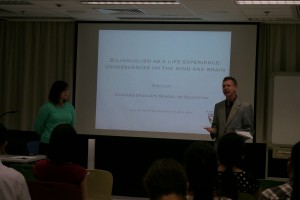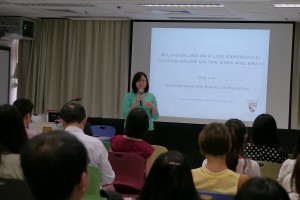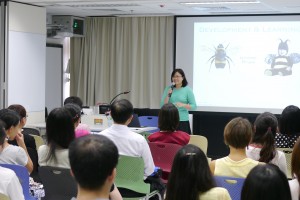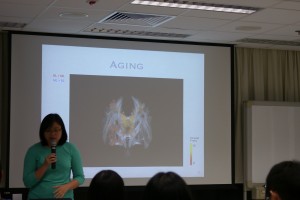Bilingualism as a life experience: Consequences on the mind and brain
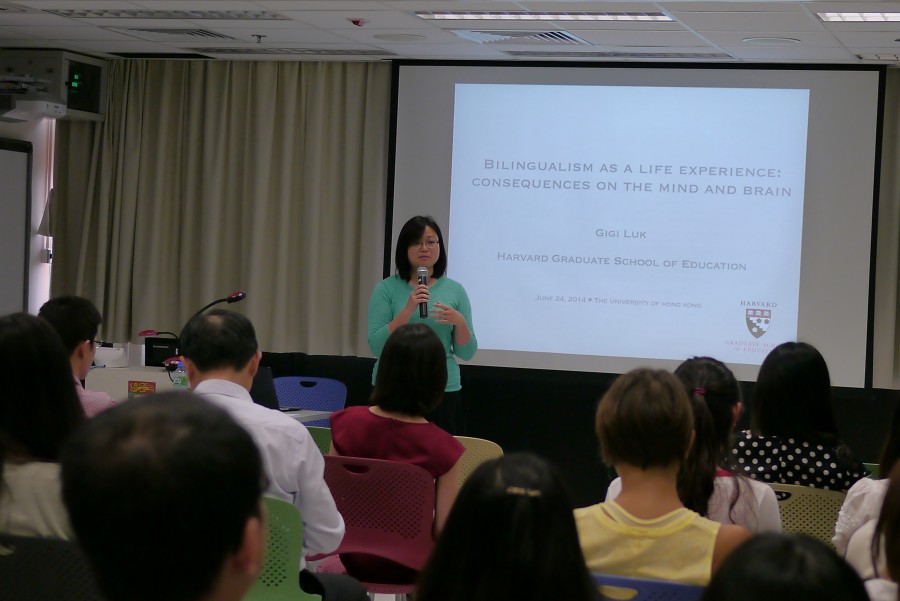
Date: 24 June 2014 (Tuesday)
Time: 18:00 – 19:30
Venue: Room 750, Meng Wah Complex, HKU
Speaker: Dr Gigi Luk, Harvard Graduate School of Education, USA
(Chair: Professor Brendan Weekes)
Seminar: Bilingualism as a life experience: Consequences on the mind and brain
Abstract
Human brain reorganizes itself according to one’s life experience. Brain plasticity is a term that describes the flexibility of the human brain in response to expectant development and divergent experiences. Experiences such as education and active lifestyle have been shown to associate with advanced development and maintained function in aging. Recent research has also suggested that bilingual experience is related to brain and behavioural plasticity. Although bilingualism has been considered to be a language experience, the cognitive consequences of this experience extend beyond the linguistic domain. In this presentation, I will demonstrate the behavioural and neural consequences of bilingual experience across the lifespan, as well as highlight large-scale functional and structural networks observed in bilinguals. Furthermore, I will reinforce the idea that bilingualism offers opportunities to investigate the interaction of experience-expectant and experience-dependent mechanisms, two concepts relevant to the understanding of human brain plasticity. Given the rich and complex linguistic landscapes in Hong Kong, this lecture will stimulate a conversation within the general public (parents, educators and professionals who concern about language development in children) to re-consider bilingualism as a life experience.
About the speaker
Gigi Luk is Assistant Professor of Education at Harvard Graduate School of Education. She received her PhD from York University in Toronto, Canada and completed her postdoctoral training at the Rotman Research Institute at the Baycrest Health Center. Her research focuses on understanding how speaking multiple languages influences language and cognition across the lifespan, from childhood to old age. Currently, she is working with schools to investigate whether information on home language usage provides more meaningful information for educators in addition to categories based on English language proficiency. Furthermore, Dr Luk is examining the reading difficulty in the context of multilingualism. Dr Luk uses behavioral assessments and neuroimaging techniques in her research. In 2013, Dr Luk was selected as the National Academy of Education/Spencer Postdoctoral Fellow.



